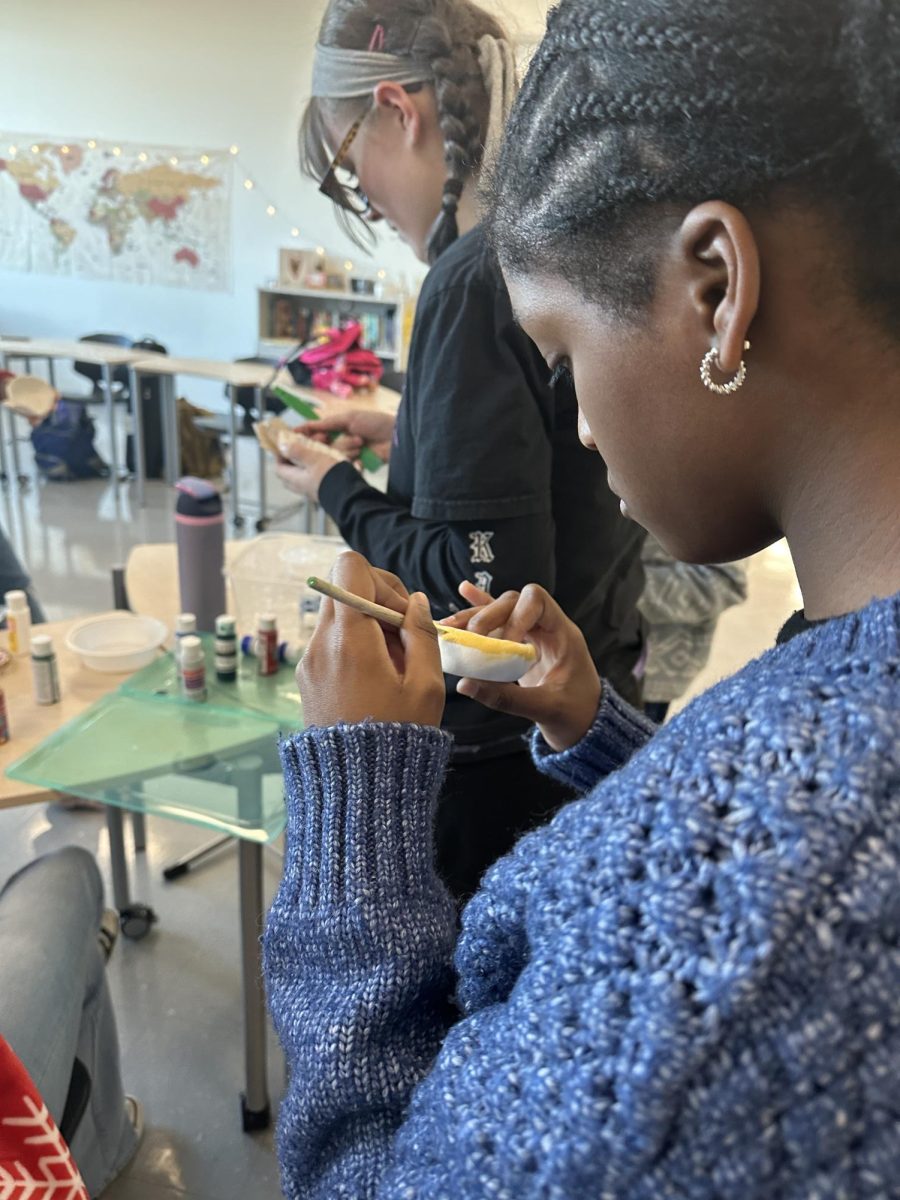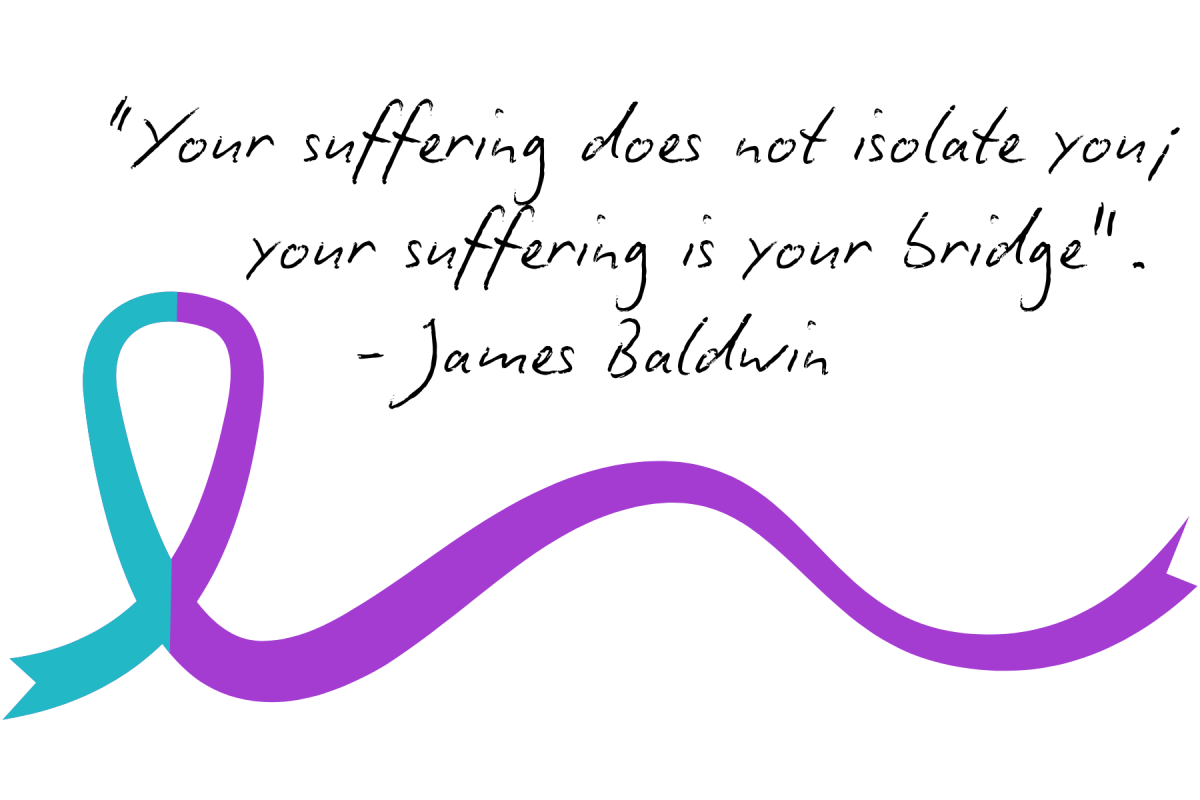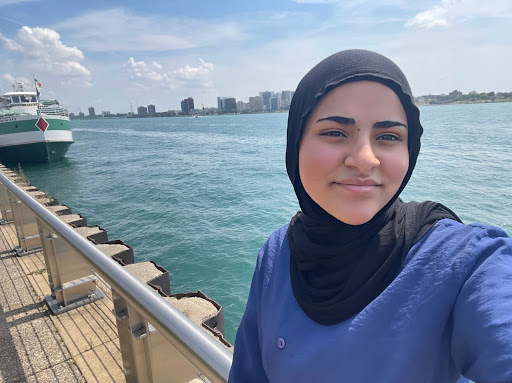September is Suicide Prevention Awareness Month, a time dedicated to addressing one of the most difficult but important topics: suicide and mental health. Suicide is often a word people avoid, hoping that by not talking about it, they won’t have to confront it. But in regard to mental health, avoiding the conversation does more harm than good.
At Rocktown High School (RHS), students have access to various resources and trained staff who are ready to provide one-on-one support at any time they need it. One of those people is Christine Spilman, a mental health counselor at RHS.
Stigma is a negative term that describes a shameful and unfair attitude based on limited knowledge of a certain belief or group of people. When mental health is not talked about enough, it creates stigma.
“When we don’t talk enough about mental health, that’s where the stigma stays,” Spilman said. “People have ideas and thoughts about things, and when we don’t know accurate information, we come up with our own. I think that’s what keeps the stigma sticking around.”
Conversations around suicide can feel uncomfortable, but avoiding them does not make the issue disappear. Talking about it can help people feel better and ultimately save a life.
“The more we talk about it, the less the stigma is there,” Spilman said. “To normalize a conversation about suicide prevention and have people just talk about their mental health makes it easier and more common to talk about.”
Learning to recognize when someone may be struggling is a key part of prevention. Changes in behavior can be an early sign that a student might be experiencing difficulties. Reaching out to them as soon as possible is a way to help and show support to someone during a tough time.
“If somebody’s normally outgoing and then they’re not outgoing, that can be a sign,” she said. “They might be more tired, not showing up for things they usually show up for, extracurricular activities, not doing well in class, or not coming to school. Some changes in behavior are what we can notice from the outside.”
For students worried about a friend, small steps can make a big difference. Reaching out with a simple question or acknowledgment can help open the door to a larger conversation.
“Just asking, ‘Hey, are you OK? I’ve noticed you haven’t been in school lately,’ or whatever it is that you’re noticing,” Spilman said. “Anything like that can be helpful.”
One of the most damaging myths about suicide is the belief that if the subject is not brought up, people won’t think about it.
“At some point, it’s on every human being’s mind, whether it’s, ‘Gee, I’m concerned for that person,’ or, ‘Gee, I’m having these thoughts myself,’” Spilman said. “Either way, every single human has had some interaction with suicidal thoughts or with other people who may be experiencing them.”
When it comes to Suicide Prevention Awareness Month, the focus should be on education and resources rather than fear.
“Just letting everybody know how you can get help, again normalizing it, that we all have thoughts sometimes,” she said. “There are thoughts that can lead to that and so bringing awareness, normalizing it, and having resources is important.”
At RHS, students are encouraged to start by speaking with their school counselor. From there, they may be connected to Spilman or other staff.
“We have Cash, the Community Services Board early intervention counselor, and she’s a good person to talk to,” Spilman said. “We also have an intern working with me this year. She will be here once a week and will be available for students to talk to as well.”
No one should feel they have to face challenges alone. Checking in on friends, listening without judgment, and guiding them toward professional help can make a lasting impact.
“By not talking about it, it’s a huge injustice,” Spilman said. “It’s already on everybody’s mind, so we might as well talk about it and normalize it.”
For RHS students, mental health staff and counselors are available on campus. Outside of school, anyone struggling with suicidal thoughts or mental health concerns can call or text the 988 Suicide and Crisis Lifeline, which provides free and confidential support 24/7.














